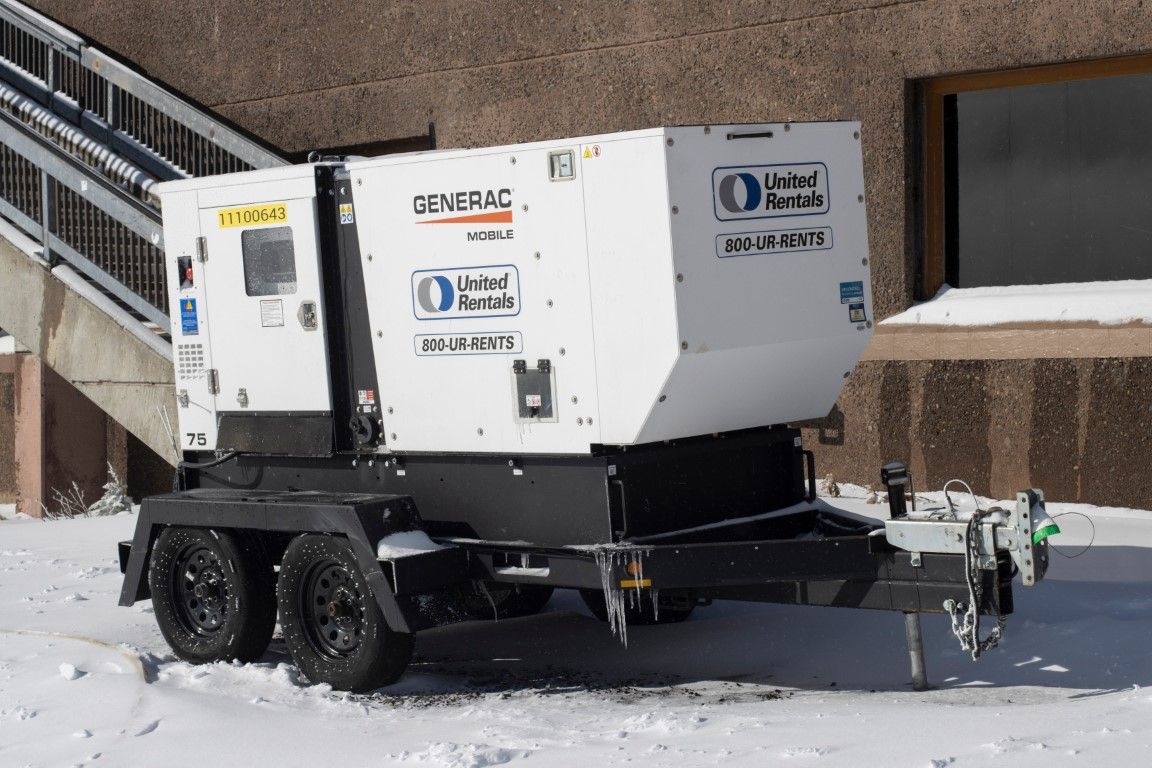
Commercial Generators in Norfolk VA
A commercial generator is a crucial piece of equipment designed to provide backup power to businesses in case of an outage. These generators ensure that operations can continue smoothly, regardless of interruptions in the main power supply. Most of the businesses rely on consistent power for daily functions, so having a reliable generator is essential. Whether it's for a retail store, office building, or industrial facility, a commercial generator in Norfolk, VA plays a vital role in maintaining business continuity, safeguarding sensitive data, and protecting equipment.
Types and Key Features to Consider
When selecting a commercial generator, it's important to understand the different types available and the features that best meet your needs. There are primarily two types of commercial generators: diesel and natural gas. Diesel generators are known for their durability and are often preferred for larger operations that require high power output. Natural gas generators, on the other hand, are generally quieter and more environmentally friendly, making them a good choice for businesses in urban areas.
Key features to consider include power capacity, fuel efficiency, and automatic transfer switches. Power capacity determines how much load the generator can handle, ensuring it meets the specific needs of your business. Fuel efficiency impacts long-term operating costs, while automatic transfer switches enable the generator to start up automatically when the power goes out, providing seamless backup power.
How It Works
A commercial generator functions by converting mechanical energy into electrical energy. When the main power supply fails, the generator's automatic transfer switch detects the outage and starts the generator. Once operational, the generator produces electricity by burning fuel, such as diesel or natural gas. This electricity is then fed into the building's electrical system, allowing critical operations to continue without interruption. The generator runs until the main power supply is restored, after which it shuts down automatically.

We will get back to you as soon as possible.
Please try again later.
Routine Checks and Inspections
Regular maintenance is crucial for ensuring the reliable performance of a commercial generator. Routine checks should include inspecting the fuel levels, oil quality, and battery charge. Additionally, it’s important to monitor the air filter and coolant levels. Inspecting the generator’s electrical connections and performing load tests can help identify potential issues before they become serious problems. Regular inspections by a professional service provider ensure that all components are functioning correctly and help prevent unexpected failures.
Troubleshooting Common Issues
Even with routine maintenance, generators can sometimes experience problems. Common issues include difficulty starting, irregular operation, or failure to provide sufficient power. Difficulty starting may be caused by a dead battery or fuel issues. The irregular operation could be due to problems with the fuel supply or engine components. Failure to provide sufficient power might indicate an issue with the generator’s capacity or electrical connections. Addressing these problems quickly is essential to avoid prolonged downtime and ensure that the generator performs effectively when needed.
Professional Servicing
For optimal performance and longevity of your commercial generator, professional servicing is essential. Experienced technicians can perform in-depth inspections, identify potential issues, and carry out necessary repairs. They also offer preventive maintenance services, which can help avoid costly repairs and ensure that the generator is always ready to perform. Professional servicing includes checking and replacing parts, such as filters and spark plugs, and ensuring that the generator meets safety and performance standards.
Ensuring that your generator is in top condition is key to avoiding disruptions to your business. If you need expert advice, maintenance, or repairs for your
commercial generator in Norfolk, VA, contact us today. Our team of skilled professionals is ready to assist with all your generator needs, ensuring your business remains powered and operational at all times. Reach out now to schedule a consultation or service appointment.
Comparing Portable vs. Standby Commercial Generators for Business Use
In today's business environment, a reliable power supply is crucial. Whether you're running a small café or a large manufacturing plant, power outages can disrupt operations, cause financial losses, and affect customer satisfaction. Generators are essential tools to ensure that your business continues to run smoothly during power interruptions. There are two main types of commercial generators to consider: portable and standby. Understanding their differences can help you make an informed decision based on your specific needs.

Portability
Portable generators are designed for mobility. They are usually smaller and lighter, making them easier to transport. This feature is beneficial for businesses that need temporary power solutions for various locations or projects. For example, if you operate a food truck or need power for outdoor events, a portable generator offers the flexibility to move where it's needed.
On the other hand, standby generators are permanently installed and typically located outside the business premises. They are connected directly to the building's electrical system and automatically activate when a power outage occurs. While they lack the mobility of portable units, their fixed position allows them to provide a more consistent and reliable power source.
Power Output
When it comes to power output, standby generators generally offer more capacity compared to portable generators. Standby generators are capable of powering an entire business, including critical systems like heating, cooling, and security. They are designed to handle larger loads and are ideal for businesses that require a continuous power supply to maintain operations.
Portable generators, while versatile, usually have a lower power output. They are best suited for smaller applications or for providing backup power to essential equipment. If your business needs to run multiple systems simultaneously, a portable generator may not provide sufficient power.
Fuel Types and Efficiency
Portable generators typically run on gasoline, propane, or diesel. Gasoline is the most common and widely available, but it may require frequent refueling, especially during extended outages. Propane and diesel offer longer running times but may be less convenient to source.
Standby generators are often powered by natural gas or propane. Natural gas is convenient because it is supplied continuously through utility lines, reducing the need for refueling. Propane, while requiring storage tanks, can also provide extended running times. Standby generators are designed to be more fuel-efficient and can operate for longer periods without interruption.
Installation and Maintenance
Installation of portable generators is straightforward and generally requires minimal setup. They are ready to use once you connect them to the equipment needing power. Maintenance involves regular checks of the fuel, oil, and other components to ensure proper functioning.
Standby generators require professional installation, including connecting them to the building's electrical system. This process ensures that the generator can automatically start when power is lost. Maintenance for standby units is more involved and typically includes regular inspections by a certified technician. These generators are built for durability and long-term reliability but may require more investment in terms of installation and upkeep.
Cost Considerations
The initial cost of portable generators is generally lower than standby generators. This makes them an attractive option for businesses with limited budgets or those that only need occasional backup power.
Standby generators, while more expensive upfront, offer a more permanent solution with greater power capacity and automatic operation. The cost of installation and maintenance should also be considered, but the investment can be worthwhile for businesses that rely heavily on continuous power.
Noise Levels
Portable generators can be quite noisy, which may be a concern for businesses located in noise-sensitive areas. They are designed for operation in a range of environments, but the noise can be disruptive.
Standby generators are typically quieter because they are installed outside the building and are designed to operate with noise reduction features. This makes them a better choice for businesses that need to minimize noise disruptions.
Reliability
Standby generators offer higher reliability due to their automatic start and connection to the building's electrical system. They are designed to provide seamless power during outages, which is critical for businesses that cannot afford downtime.
Portable generators require manual setup and operation. While they can be reliable, there is a risk of delays in getting them up and running. For businesses that require a guaranteed power source, standby generators offer a more dependable solution.
Choosing between a portable and a standby generator depends on your business's specific needs, including power requirements, budget, and operational considerations. If you need expert advice on selecting the right generator for your business, don't hesitate to reach out. Our team is here to help you find the perfect solution to ensure uninterrupted power for your operations. Contact us today to discuss your options and get a customized recommendation tailored to your business needs.
The Role of Commercial Generators in Emergency Preparedness
In today’s world, businesses face various challenges that can disrupt operations. One of the most critical threats is power outages. Whether caused by severe weather, accidents, or other unforeseen events, a loss of power can halt business activities, lead to financial losses, and impact safety. To mitigate these risks, commercial generators play a vital role in emergency preparedness. Understanding their importance can help businesses safeguard their operations and ensure continuity during power disruptions.
Commercial generators are essential tools for businesses aiming to maintain operations during power outages. These generators provide a reliable backup power source, ensuring that critical systems remain operational when the main power supply fails. Here’s how they contribute to emergency preparedness:
Continuity of Operations
Businesses often rely on power for everyday operations, including lighting, computers, refrigeration, and more. During a power outage, commercial generators keep these systems running, preventing disruptions. This continuity is crucial for industries like healthcare, where equipment and systems must function without interruption to ensure patient safety and effective care.
Protection of Data and Technology
Modern businesses are heavily dependent on technology. Data centers, servers, and communication systems need a constant power supply to function properly. A commercial generator helps protect valuable data from loss or corruption by providing a backup power source. This ensures that businesses can continue to access and manage their data even during a power outage.
Safety and Security
Power outages can compromise security systems, such as alarms and surveillance cameras. Commercial generators ensure that these systems remain operational, enhancing safety and security. This is especially important for businesses with sensitive information or high-value assets that need to be protected around the clock.
Regulatory Compliance
Some industries are required to have backup power systems to comply with regulations and standards. Commercial generators help businesses meet these requirements, avoiding potential fines and legal issues. For example, healthcare facilities and financial institutions often have strict regulations regarding power backup to ensure continuous service and operational stability.
Minimizing Financial Losses
Power outages can lead to significant financial losses due to halted operations, spoiled inventory, and disrupted services. By having a commercial generator in place, businesses can minimize these losses. Generators enable businesses to maintain productivity and revenue even during power interruptions, making them a worthwhile investment in emergency preparedness.
Flexibility and Scalability
Commercial generators come in various sizes and capacities, allowing businesses to choose one that fits their specific needs. Whether a small retail store or a large industrial facility, there is a generator solution that can be tailored to provide the necessary power backup. This flexibility ensures that businesses of all sizes can enhance their emergency preparedness.
Ensuring that your business is prepared for unexpected power outages is essential for maintaining operations and protecting valuable assets. We offer a range of commercial generators to suit different needs and requirements. Our team of experts can help you select the right generator and provide installation and maintenance services to keep your business running smoothly. Don’t wait until the next power outage to think about emergency preparedness. Contact us today to learn more about our commercial generator solutions and how they can help safeguard your business. Your peace of mind and operational continuity are just a call away.
Let's Connect!
Are you tired of worrying about power outages? Look no further than us. Our experienced team is dedicated to providing reliable and efficient generator installation and maintenance services. With a generator from us, you can rest easy knowing that your home or business will stay powered during unexpected outages. Don't wait until the next storm hits - hire us today and enjoy the peace of mind that comes with reliable backup power!